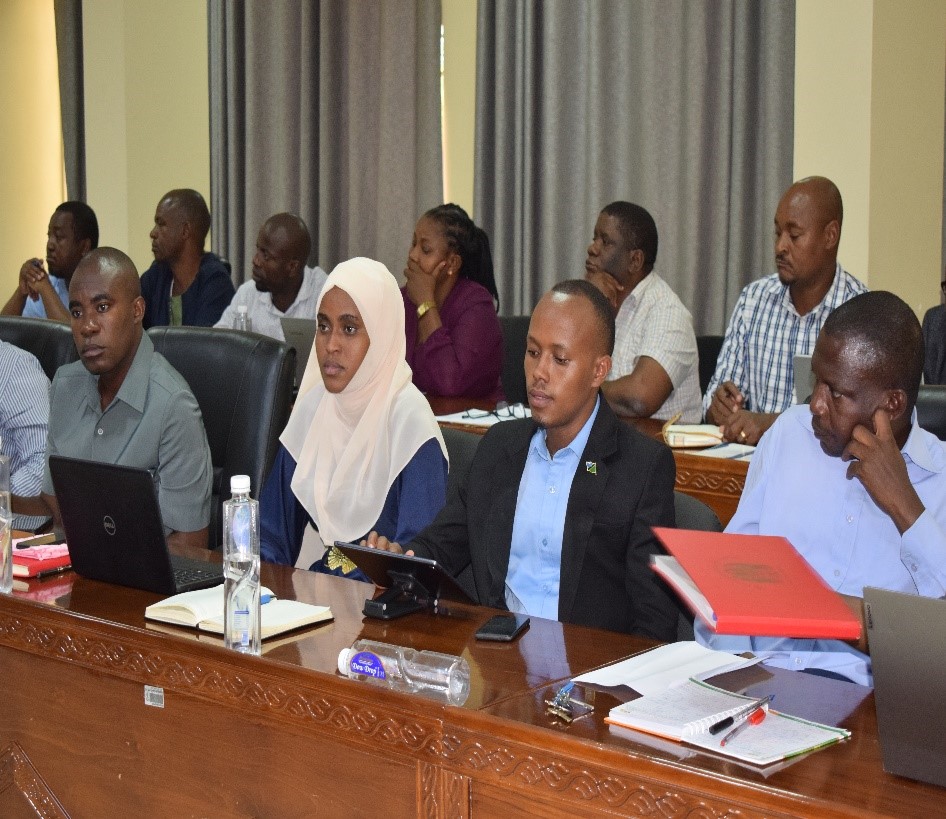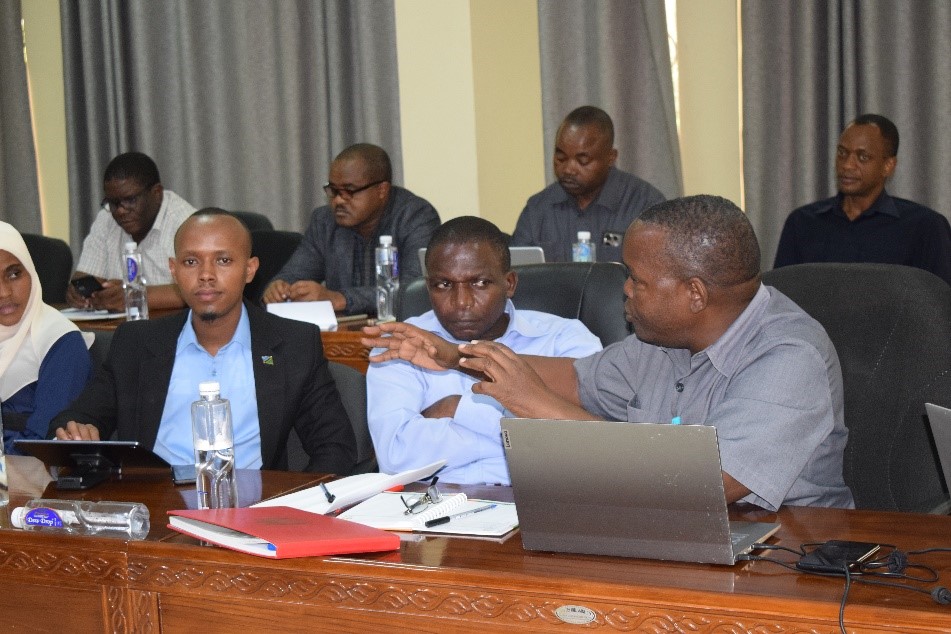News
The DUCE Industrial Advisory Board joins the College in reviewing programs
Fri, 10.May.2024 17.00DUCE Industrial Advisory Board (IAB) joined the College in reviewing the College programs. The activity was carried out during the 3rd Industrial Advisory Board meeting held at the College Boardroom on Tuesday 30th April 2024. Precisely, the Board was involved in reviewing the program contents and their relevance, revisiting collaborations with professionals, networking with industrial firms for job opportunities and other insights regarding career outcomes. Prior to it, the College had convened a consultative meeting involving DUCE and a team of different experts.
During the meeting, seven programs were reviewed by DUCE Industrial Advisory Board. These programs are Master of Science in Industrial Chemistry (MSc. Ind. Chem), Master of Science in Environmental Biology (Msc.Env.Bio), Master of Arts in Development Evaluation (MADE), Master of Science in Sustainable Development (MASD), Bachelor of Arts in Disaster Risk Management, (BA. DRM) Bachelor of Education in Special Needs and Inclusive Education (BEDSNIE) and Teacher Continuous Professional Development Program (TCCD).
Referring to their comments, IAB members said a program like BEDSNIE need to address the new emerging group of children with autism, develop professional teachers who will focus on both students with special needs and autism, and design a compulsory course on sign language that will cut across issues of disability, climate change and gender related contents. Correspondingly, teams commended the College for introducing a market-driven TCPD program, which is determined in addressing challenges encountered by primary and secondary school teachers. Furthermore, they proposed that the program could serve as an opportunity, given the forthcoming implementation of a new education policy that likely to mandate newly employed teachers to obtain license by the Teacher Professional Board. They also urged team members to consider initiating a policy dialogue with the Ministry of Education to encourage the adoption of the proposed program.
In his concluding remarks, the Chairperson of IAB, Dr. John Kalage thanked the IAB members for their insightful contributions. He also acknowledged the teams of academicians for brainstorming and coming with new ideas that are likely to enhance the development of the program. On the other hand, the College Principal. Prof. Maluka requested the teams to keep creating peculiar programs and avoid reduplication and mere coping of programs delivered by other institutions.
Other News
Tue, 25.Jun.2024 : The College enhances capacity building of its staff through public service workshopTue, 25.Jun.2024 : DUCE commemorates Public Service Week with initiatives to address community challenges
Fri, 14.Jun.2024 : 40 Participants graduate from Teaching Kiswahili as a Foreign Language Course
Thu, 13.Jun.2024 : Hon. Chalamila encourages DUCE students to maintain positive attitude of life
Thu, 13.Jun.2024 : New DARUSO-DUCE leaders oriented on leadership skills


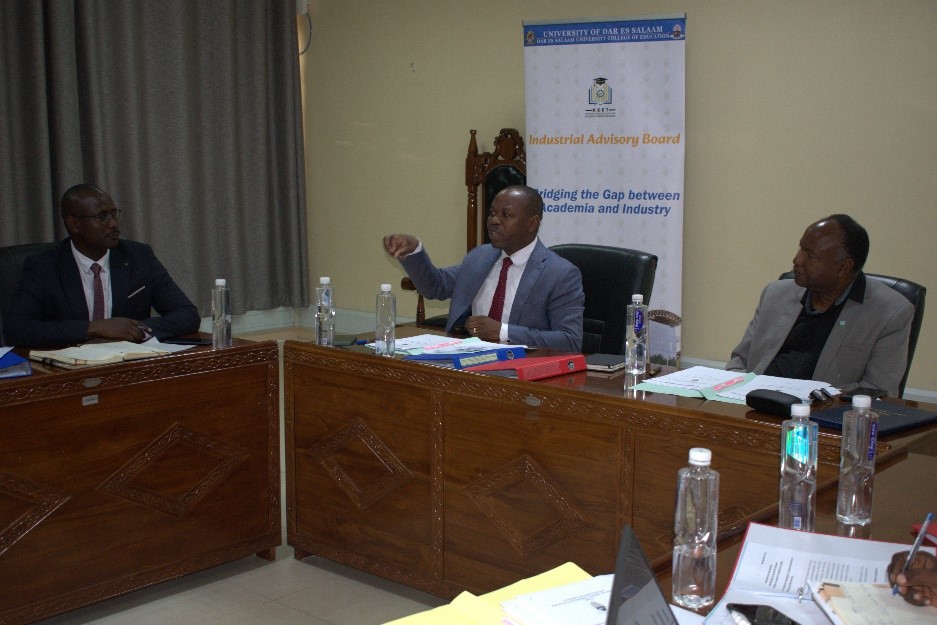
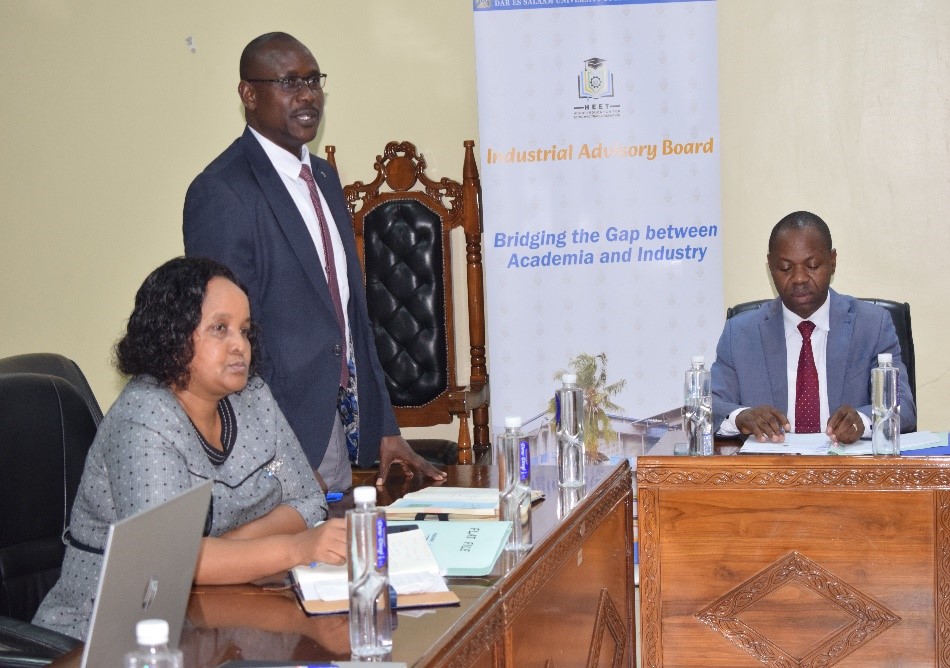
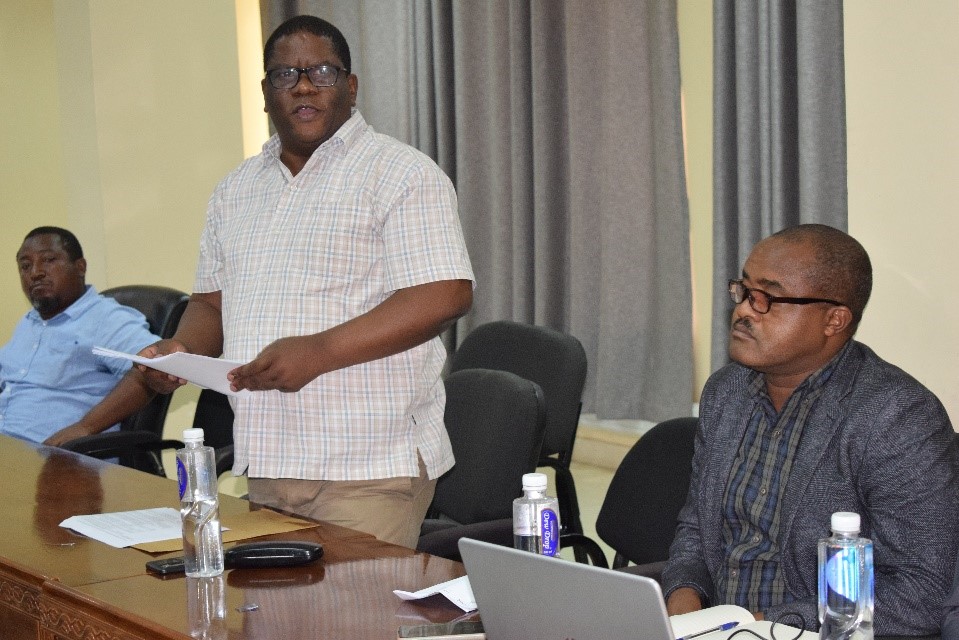
 program.jpg)
